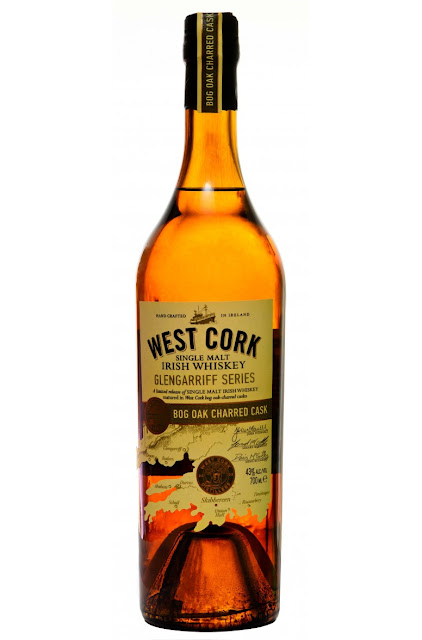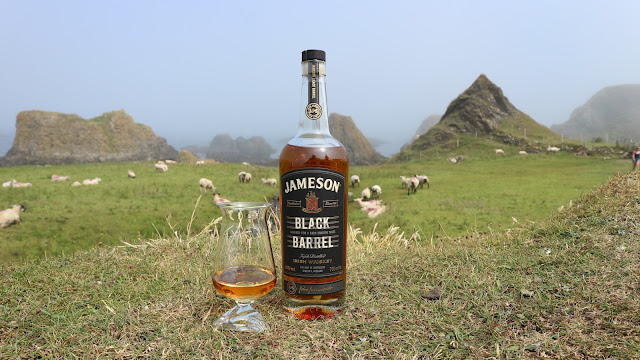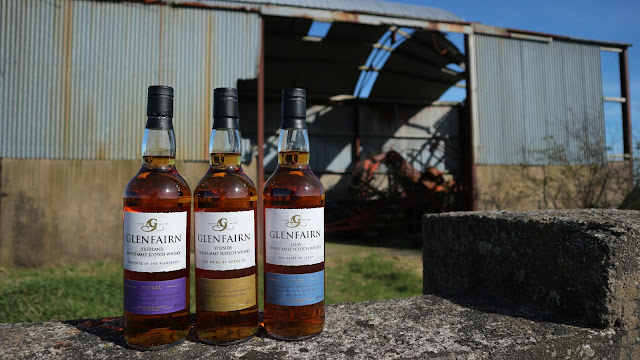West Cork Vertical
Originally published 25/09/2018
The Collins English dictionary defines an 'experiment' as an attempt at something new or different, an effort to be original.
Humans have an ingrained streak of exploration, we're never really happy with the status quo. The question 'What if?' hangs around us in perpetuity. To be fair this quality of curiosity, exploration and pushing the envelope is to be applauded and has very much made the world we live in.
Thanks to brainy folk like Michael Faraday, Thomas Edison and Nikola Tesla we can generate our own electricity without resorting to being struck by lightning. Edison was able to make the electric lightbulb a commercial reality, so we can thank him that we still don't rely on oil or gas lamps.
And that's just the tip of an iceberg of genius inventions born through experimentation that affect us today: planes, trains and automobiles. The printing press, the telephone, the internet... Malt!
Of course not every experiment, well-intended or otherwise, has quite so positive outcomes. Take for example Dr Allan Walker Blair of the University of Alabama medical school. In 1933 he let a black widow spider bite him on the finger for 10 full seconds! For why you may ask? The experiment was two-fold – to prove that black widow spider bites were indeed very toxic and dangerous to humans and second, to see if humans could build up an immunity to the venom through repeated bites.
Needless to say, the outcome wasn't great. It did prove black widows were very poisonous... within two hours Dr Walker lost the ability to write, within three hours he couldn't stand. The symptoms and pain became so bad that he had to be given morphine and placed in a warm bath. His attending doctor noted, “I do not recall having seen more abject pain manifested in any other medical or surgical condition.” After two days of excruciating pain, he was allowed to go home and thankfully made a full recovery.
Dr Walker did show that he wasn't a complete buck eejit though... the experience was so horrific that he never went back for round two with the black widow!
Experimentation then in any field can be a mixed bag regarding results.
The greatest gift to mankind that has come from our quest for experimentation was when a few Irish monks, bored with their homebrew, started faffing about with alembic stills and made uicse beatha! (We certainly didn't steal the idea from the Persians or Chinese....we invented it, right! End of. And as such, I want you to go through your contact list and thank every Irish person you know!!)
This uisce beatha, aqua vitae, water of life, call it what you will, has then been experimented on for quite a few centuries, being continuously refined into the drink we now call whisky.
Even now our quest to do something new and different, to be original, to experiment with whisky continues. And why wouldn't it because whisky offers so much potential for variation.
Different yeast strains, different grains and mashbills, fermentation times, where to cut the spirit, cask types, maturation times and conditions just to name a few. All offer a limitless variety of outcomes, some good, some not so good.
Just as examples, we see that over in the States we are seeing the likes of Millet and Triticale (a hybrid of wheat and rye) grains being used exclusively in mashbills. In Scotland, we've seen Glenfiddich and Deanston use IPA barrels for finishes. In Ireland where wood choice is a little more relaxed, we've seen Chestnut and Acacia used for finishing. Echlinville created their Three Crowns Peated blend by finishing the spirit in casks that previously held heavily peated Islay whisky.
All of which brings us to the four whiskies we are looking at today from West Cork Distillers.
The first two are relatively standard fare. The Bourbon Cask blend is made up of 75% grain, 25% single malt and matured in 1st fill bourbon barrels for an unspecified time and bottled at 40% abv and had been available for £21 on Master of Malt.
The Black Cask is 66% grain, 34% single malt aged for an unspecified time in 1st fill bourbon barrels and then 'polish' finished in double charred casks, bottled at 40% abv and available from the Celtic Whiskey Shop for €37.
The next two, the Glengarriff series, are where West Cork Distillers got truly experimental. These expressions were limited editions which were finished in casks charred by fuel found in the Glengarriff Forest in West Cork, namely Bog Oak and Peat. They even developed their own bespoke charring device for the barrels. Both the Bog Oak Charred and Peat Charred cask are single malt whiskies matured in ex-sherry casks before being finished in their respective Bog Oak charred and Peat charred casks for six months. Bottled at 43% you can buy these from Master of Malt at £34.95 and £36.36 respectively.
Transparency – the good people at West Cork Distillers sent me samples for review.
West Cork Bourbon Cask - review
Colour: White Wine
On the nose: The high grain content is immediately noticeable – there is a bit of alcohol burn mixed in with sweet, floral grain, fabric conditioner, vanilla, honey, hay, apricot, unripe peach, pepper and oak.
In the mouth: Thin mouthfeel with a sweet arrival. Honey, vanilla, cereal, a little apricot and pleasantly warming. The finish is short, lightly spiced along with some oak and a little leather.
Score: 3/10
West Cork Black Cask - review
Colour: Pale copper
On the Nose: Much darker this time, the grain is much less noticeable although still present. There is a cereal sweetness with vanilla, banana, toasted nuts, caramel, cocoa, cinnamon and a healthy level of cask char.
In the mouth: Although still thin in the mouthfeel this has much more to offer than the Bourbon Cask. Demerara sugar, vanilla, buttercream, nutmeg and cinnamon, toffee, oak and a late waft of cask char. The finish although still short is spicy and warming with just a little smoke.
Score: 5/10
West Cork Glengarriff Bog Oak
Colour: Sunlit straw
On the nose: Initially a bit of an alcohol kick to the nose it is also quite spicy. Allspice, chilli flakes and toasted oak. Then comes a mesquite like smokiness, balsamic reduction, salted roast peanuts, dry sherry, dark chocolate.
In the mouth:
Quite a sweet arrival, honey roast peanuts, golden syrup, grilled apples, bbq meat which then becomes very earthy and ashy. The finish is short with charred oak and ash.
Score: 3/10
West Cork Glengarriff Peat Charred Cask - review
Colour: As above
On the nose: Smoky, but not a medicinal style Islay smoke or a heathered Highland smoke, think more of hot bbq coals. Crisp smoky bacon, smoked pork then it becomes very feinty – fresh varnish and furniture polish and just a hint of sherry in the background.
In the mouth: Immediately very smoky, in fact, the smoke dominates everything the point that the spirit is smothered and tasting notes become indiscernible. Even worse it tastes like an acrid, artificial smoke at that. The finish is, well, very unpleasantly smoky. Think burnt oak and peat doused in accelerant, then put in a blender and the resulting liquid strained from the mixture!
Score: 1/10
Conclusions
Definitely, a rollercoaster ride here, although more of a junior rollercoaster that never attains much in the way of height or entertainment.
The Bourbon Cask blend is acceptable, it is what it is, a cheap but approachable blend and it holds court with the likes of Bushmills White Label and Jameson. Absolutely fine for a cocktail or long drink but not one I'd recommend neat.
The Black Cask is definitely a few steps above and the star of the show here. It's reasonably priced, well made and tastes good. I don't think you can find many complaints at this price point. Fine as an everyday sipper.
The Glengarriff Bog Oak is interesting, to say the least. The nose definitely is better than the palate. I can see what they were trying to do here but I think this expression would benefit from some extra ageing and maturity before it goes into the finishing cask.
The Glengarriff Peat Charred Cask... I'm sorry to have to type this. Unfortunately, this is the worst whiskey to have passed my lips ever. I'm giving it a 1 because there is no zero on the scoring band so I'm duty bound on the 1. For his review of the Jura Seven Wood Jason claimed there had been a spirit murder. Well, we now have a serial killer...on a spree! This spirit has literally been bludgeoned to death with peat sods and then the instruments of its demise have been used to cremate the body. Not as painful as a black widow bite but an unpleasant experience that I won't be going for a second round with! This was an experiment too far I think and one that should have stayed firmly within the confines of the West Cork tasting rooms.
Bottle photographs from the Celtic Whiskey Shop.
If you’d like to support my humble site you can do so following the ‘buy me a coffee’ link. Thanks for reading.











Comments
Post a Comment